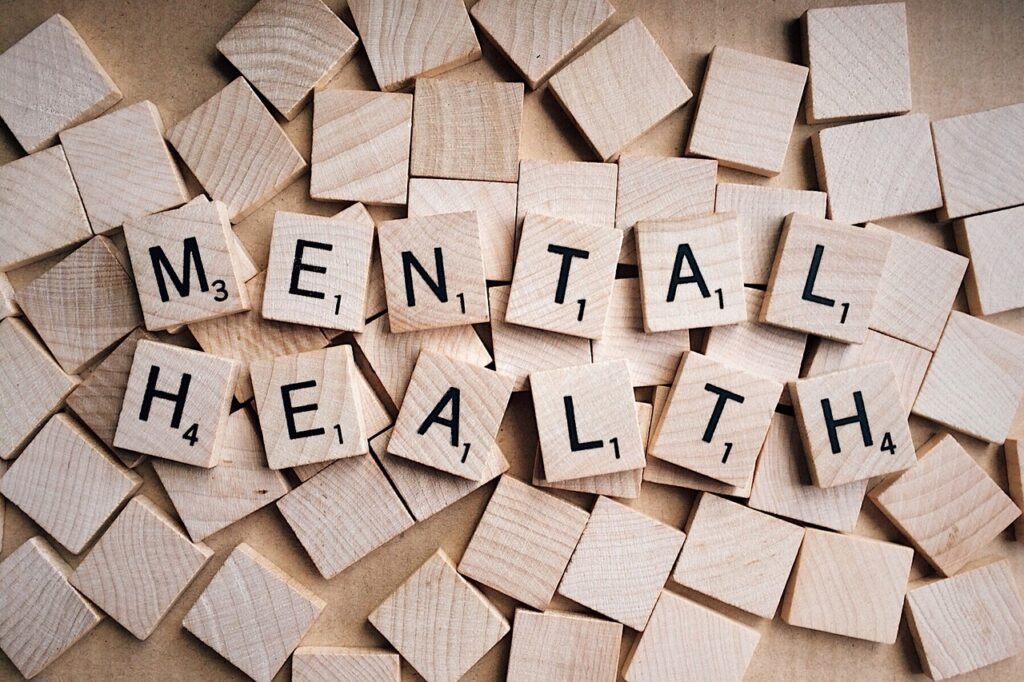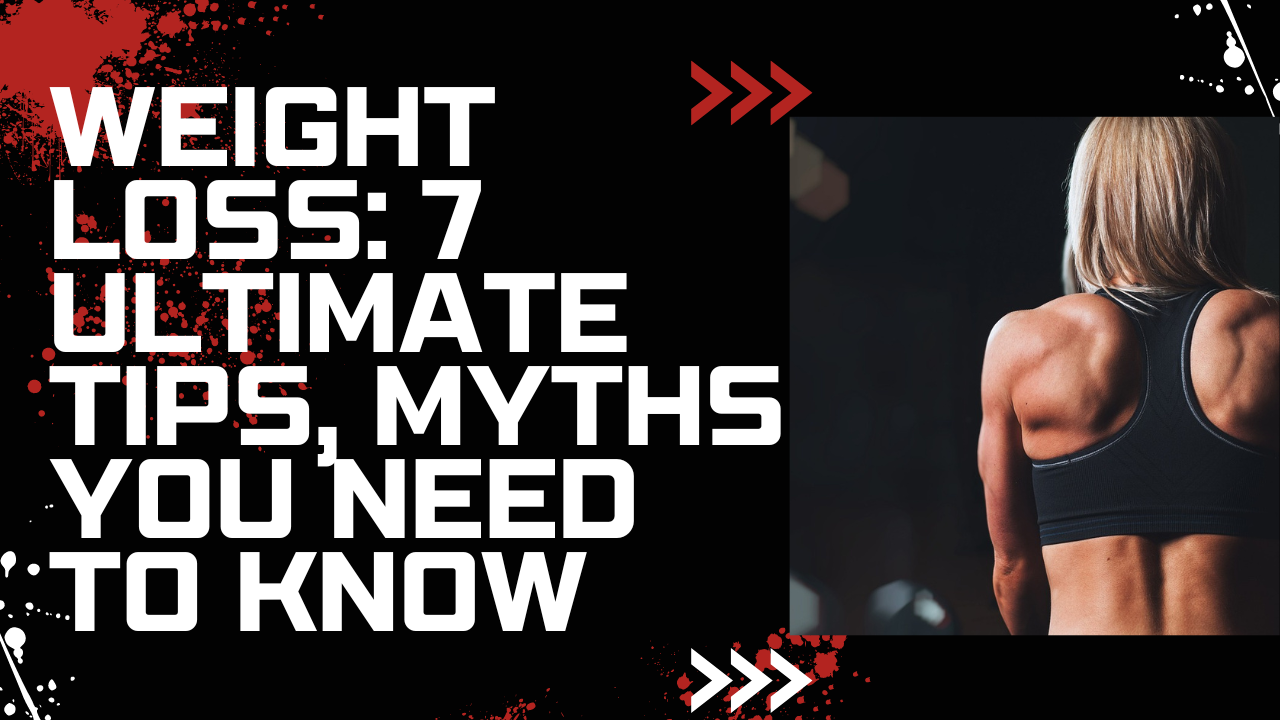When it comes to weight loss, it’s important to approach it as a journey rather than a quick fix. Sustainable weight loss requires a combination of healthy eating, regular exercise, and a positive mindset. It’s not just about losing the weight, but also about adopting healthy habits that you can maintain in the long run.
Table of Contents
Set Your Goal
- One of the first steps in your weight loss journey is to set realistic goals. It’s important to have a clear idea of what you want to achieve and how you plan to get there. Setting specific, measurable, achievable, relevant, and time-bound (SMART) goals can help you stay focused and motivated throughout your journey.
Nutrition


- Next, it’s important to understand the role of nutrition in weight loss. A balanced and nutritious diet is key to achieving your weight loss goals. This means consuming a variety of fruits, vegetables, whole grains, lean proteins, and healthy fats. It’s also important to watch your portion sizes and limit your intake of processed foods, sugary drinks, and unhealthy snacks.
- In addition to a healthy diet, regular physical activity is crucial for weight loss. Aim for at least 150 minutes of moderate-intensity aerobic exercise or 75 minutes of vigorous-intensity exercise per week. This can include activities such as brisk walking, jogging, cycling, swimming, or dancing. Incorporating strength training exercises two or more days a week can also help build lean muscle mass and boost your metabolism.
Mental Health and Emotional Well Being


While diet and exercise are important, it’s equally important to take care of your mental and emotional well-being. Weight loss can be challenging, and it’s normal to face obstacles along the way. Developing a positive mindset, practicing self-care, and seeking support from friends, family, or a healthcare professional can help you stay motivated and overcome any hurdles that come your way.
Remember, weight loss is a journey, and it’s important to be patient with yourself. It’s normal to experience ups and downs along the way, but with the right mindset, support, and determination, you can achieve your weight loss goals and create a healthier, happier you.
Energy Balance
- In order to create a calorie deficit and promote weight loss, it’s important to understand the concept of energy balance. Calories are units of energy that our bodies use to fuel various bodily functions. When we consume more calories than our bodies need, the excess energy is stored as fat. On the other hand, when we consume fewer calories than our bodies require, our bodies tap into stored fat for energy, resulting in weight loss.
- While it may be tempting to drastically reduce your calorie intake in an effort to lose weight quickly, this approach is not sustainable in the long run. Severely restricting calories can lead to nutrient deficiencies, muscle loss, and a decrease in metabolism. Instead, it’s important to focus on creating a moderate calorie deficit that allows for steady and sustainable weight loss.
- A healthy and balanced diet is a crucial component of any successful weight loss journey. This means consuming a variety of nutrient-dense foods that provide essential vitamins, minerals, and macronutrients. Incorporating plenty of fruits, vegetables, whole grains, lean proteins, and healthy fats into your diet can help support weight loss and overall health.
Creating a Healthy Diet

A healthy diet plays a crucial role in weight loss. Here are some key tips to help you create a balanced and nutritious meal plan:
- Include a variety of fruits and vegetables in your diet. They are packed with essential vitamins, minerals, and fiber. Fruits and vegetables not only provide important nutrients but also offer a range of flavors and textures that can make your meals more enjoyable. Try to incorporate different colors of fruits and vegetables to ensure a wide range of nutrients.
- Choose whole grains over refined grains. Whole grains provide more nutrients and are higher in fiber, promoting feelings of fullness. Whole grain foods such as brown rice, quinoa, and whole wheat bread are also rich in antioxidants and can help reduce the risk of chronic diseases such as heart disease and type 2 diabetes.
- Incorporate lean proteins such as chicken, fish, tofu, or legumes. Protein helps to build and repair tissues, keeping you satisfied for longer. Including a variety of protein sources in your diet ensures that you get all the essential amino acids your body needs. Additionally, lean proteins are generally lower in saturated fat, making them a healthier choice for your heart.
- Avoid sugary drinks and opt for water or herbal tea instead. Sugary beverages can contribute to excess calorie intake without providing any nutritional value. Drinking water throughout the day helps to keep you hydrated and can also help curb your appetite. Herbal teas, such as green tea or chamomile tea, can provide additional health benefits and can be a great alternative to sugary drinks.
- Limit your intake of processed and fried foods. These are often high in unhealthy fats, sodium, and added sugars. Instead, focus on cooking your meals at home using fresh, whole ingredients. This way, you have control over the ingredients and can make healthier choices. If you do eat out, try to choose restaurants that offer healthier options or opt for grilled or steamed dishes instead of fried ones.
Remember, it’s important to listen to your body and eat in moderation. Pay attention to portion sizes and practice mindful eating to avoid overeating. Eating slowly, savoring each bite, and paying attention to hunger and fullness cues can help you develop a healthier relationship with food and prevent overindulgence. Creating a healthy diet is not about deprivation or strict rules but rather about making sustainable choices that nourish your body and support your overall well-being.
Getting Active


Regular physical activity is not only beneficial for weight loss but also for overall health and well-being. Here are some tips to help you incorporate exercise into your daily routine:
- Find activities you enjoy. Whether it’s walking, swimming, dancing, or cycling, choose activities that you find enjoyable and are more likely to stick with in the long run.
- Start small and gradually increase intensity. If you’re new to exercise, begin with shorter sessions and gradually build up your endurance and intensity level.
- Mix it up. Incorporate a variety of exercises to keep things interesting and target different muscle groups.
- Stay consistent. Aim for at least 150 minutes of moderate-intensity aerobic activity or 75 minutes of vigorous-intensity activity per week, along with strength training exercises at least twice a week.
- Listen to your body. If you experience any pain or discomfort during exercise, it’s important to take a break and consult with a healthcare professional if needed.
- Make it a social activity. Exercising with friends or joining a fitness class can not only make your workouts more enjoyable but also provide accountability and motivation.
- Set realistic goals. It’s important to set achievable goals that are specific, measurable, attainable, relevant, and time-bound (SMART goals). This will help you stay focused and track your progress.
- Stay hydrated. Drink plenty of water before, during, and after your workouts to stay hydrated and prevent dehydration.
- Take rest days. Rest days are just as important as exercise days. Give your body time to recover and repair itself to avoid overtraining and burnout.
- Track your progress. Keep a record of your workouts, including the type of exercise, duration, and intensity. This will help you see how far you’ve come and stay motivated.
Remember, staying active is not only important for weight loss but also for improving cardiovascular health, boosting mood, and reducing the risk of chronic diseases. Incorporating these tips into your daily routine will help you make physical activity a lifelong habit.
Debunking Common Myths
When it comes to weight loss, there are numerous myths and misconceptions. Let’s debunk some of the most common ones:
- Myth: Skipping meals helps with weight loss. Reality: Skipping meals can actually lead to overeating later in the day and may negatively impact your metabolism.
- Myth: Carbohydrates should be completely eliminated from your diet. Reality: Carbohydrates are an important source of energy. Opt for complex carbohydrates and watch portion sizes.
- Myth: Crash diets are effective for long-term weight loss. Reality: Crash diets are not sustainable and often result in weight regain once the diet is stopped. Focus on making long-term lifestyle changes instead.
- Myth: You can target specific areas for fat loss. Reality: Spot reduction is a myth. Weight loss occurs throughout the body, not just in specific areas.
- Myth: All fats are bad for you. Reality: There are healthy fats, such as those found in avocados, nuts, and olive oil, that are essential for a balanced diet.
- Myth: Exercise is the only way to lose weight. Reality: While exercise is important for overall health and weight management, diet plays a crucial role in weight loss as well.
- Myth: Weight loss supplements are a quick fix. Reality: Weight loss supplements are not regulated by the FDA and their effectiveness is often questionable. It’s best to focus on a healthy diet and exercise routine.
- Myth: Eating after 8 p.m. leads to weight gain. Reality: The time of day you eat does not directly impact weight gain. It’s the overall calorie intake that matters.
- Myth: You have to cut out all your favorite foods to lose weight. Reality: It’s all about moderation. You can still enjoy your favorite foods in moderation while following a balanced diet.
- Myth: Weight loss is a linear process. Reality: Weight loss can be a journey with ups and downs. It’s important to stay consistent and focus on long-term progress rather than short-term fluctuations.
By understanding and debunking these myths, you can make informed decisions about your weight loss journey. Remember, it’s important to consult with a healthcare professional or registered dietitian for personalized advice and guidance.
Read More Sattvic Diet: Ultimate Plan To Lose Weight You Need To Know 2024
Frequently Asked Questions
Here are some frequently asked questions about weight loss:
1. How quickly can I expect to see results?
The rate of weight loss varies for each individual. It’s important to focus on gradual and sustainable weight loss, aiming for 1-2 pounds per week. Remember, slow progress is still progress!
2. Can I lose weight without exercise?
While exercise is beneficial for weight loss and overall health, it’s possible to lose weight through diet alone. However, incorporating physical activity into your routine has numerous benefits and can enhance your weight loss efforts.
3. Are weight loss supplements effective?
Weight loss supplements are not a magic solution for weight loss. They should be used with caution and under the guidance of a healthcare professional. It’s important to focus on a healthy diet and lifestyle changes for long-term success.
4. Can I indulge in my favorite treats while trying to lose weight?
Yes, you can still enjoy your favorite treats in moderation. It’s all about balance and portion control. Incorporate treats into your diet occasionally, but be mindful of your overall calorie intake.
5. How do I stay motivated throughout my weight loss journey?
Staying motivated can be challenging, but here are some tips to help you stay on track:
- Set realistic goals and celebrate your achievements along the way.
- Find a workout buddy or join a support group for accountability.
- Track your progress and make adjustments as needed.
- Reward yourself with non-food treats for reaching milestones.
- Focus on the positive changes you’re making for your health and well-being.
- Stay educated and informed about the latest research and information on weight loss.
- Surround yourself with a positive and supportive environment.
- Practice self-care and prioritize your mental and emotional well-being.
Remember, weight loss is a journey, and it’s important to be kind to yourself along the way. Take it one step at a time, and don’t be discouraged by any setbacks. With dedication, patience, and a healthy mindset, you can achieve your weight loss goals and maintain a healthy lifestyle.
Read More https://www.health.harvard.edu/topics/diet-and-weight-loss

